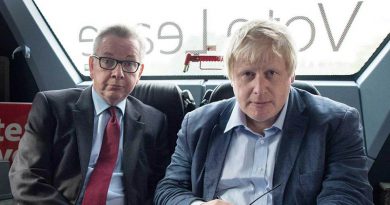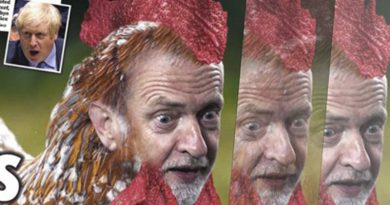Approaching the Brexit cliff edge – journalists must now focus on policy not personalities
Inside the “Westminster bubble”, rumours of newly formed parties, conflicts between MPs and private meetings with rival politicians no doubt excite most journalists who closely follow the hustle and bustle of day-to-day parliamentary life.
But as the UK edges closer to leaving the EU without a deal, these are atypical times and the media have an important role to play in the weeks to come.
They help set the public and political agenda, influencing how people view and understand politics, which in turn puts pressure on politicians to respond to events and issues.
This is not to suggest the processes and personalities of politics are unimportant. They clearly are and the media are right to prominently report the MPs leaving Labour and to discuss the implications of their decisions.
But it is the extent to which these seven politicians continue to influence Brexit coverage that should be closely monitored. If a succession of MPs start to jump ship and join this new group of independent politicians then it should warrant prominent media attention. It could potentially change parliamentary arithmetic with a future vote on a Brexit deal or radically alter the political landscape if a snap election is called.
But, at the moment, it doesn’t look like a mass exodus of MPs is imminent. Instead, we may witness in the days and weeks to come a few MPs calling press conferences and making dramatic announcements about leaving their parties. Or we may hear thinly veiled threats from the usual political suspects about abandoning their parties if they do not see changes to their leaders’ Brexit positioning.
Focus on issues
But while political posturing and internal party strife may appeal to the news values of journalists on the ground, it risks overlooking the far bigger story about how the parties and leaders are responding to the challenge of reaching a Brexit deal or governing without one after March 29, 2019.
Overall, we found that in many countries more than 40% of the TV news agenda – sometimes much more – was devoted to the processes of the campaign, rather than coverage of the issues, or the policy preferences of rival political parties. Longitudinal studies from the 20th century and into the 21st century suggest this trend may be increasing.
Ideological impact
The implications of focusing on the processes of politics rather than the policy choices of competing parties can be ideologically profound. It can shift public attention away from politicians resolving real-life issues and events and promote a more partisan or polarised culture of politics.
From Corbynistas against Blairites to the May loyalists versus Hard Brexiteers, the narrow Westminster lens can lead to broadcasters becoming fixated on party political conflict that pits big personalities against each other but does little to enlighten public understanding of complex issues.
The evidence has long shown most people do not closely follow the political news cycle. Moreover, studies have shown that many do not accurately recall political events and issues – and this is all too often a result of being confused by the language of Westminster politicians and journalists.
So, for example, when it is reported that the “Malthouse compromise” could be the answer to the UK’s political impasse, it would be hard to imagine most people being able to articulate what this represents, let alone understand how it can unlock negotiations between the UK and EU.
Explaining Brexit
As the clock continues to tick down on the UK exiting the EU, the media remain critical to the process. UK public service broadcasters, in particular, are legally obliged to report accurately and impartially, with a mission to raise public knowledge and understanding of politics and public affairs.
Broadcasters can choose not to be distracted by party political shenanigans, and address the salient issues that concern most voters. They can independently explain to audiences the evidence about the impact of a no-deal Brexit, the possible options the UK has in reaching a settlement with the EU, or whether a second referendum is a realistic prospect.
Needless to say, none of this is necessarily easy or straightforward to explain. But unlike politicians caught up in internal party conflict or ideological dogma, journalists have the power to bring more light than heat on fast changing events and issues.![]()
Stephen Cushion, Reader, School of Journalism, Media and Culture, Cardiff University
This article is republished from The Conversation under a Creative Commons license. Read the original article.



